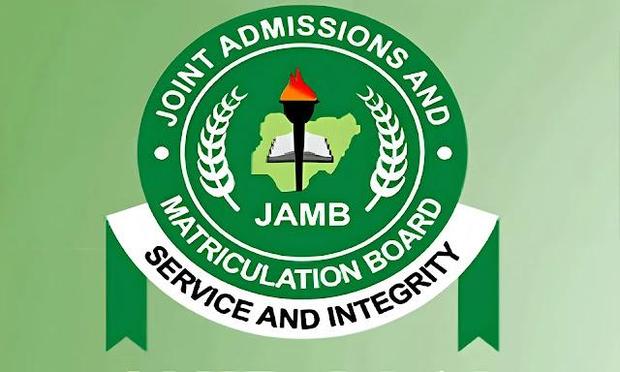ICYMI: Joint Admissions and Matriculation Board Uncovers 142 Applicants with Fake Results in Kano University Admissions https://www.rainsmediaradio.com/2025/04/joint-admissions-and-matriculation.html?utm_source=dlvr.it&utm_medium=mastodon Follow, Like & Share #JAMB #UniversityAdmissions #FakeResults #KanoUniversity #AcademicFraud
#AcademicFraud
Kleiner Reminder an den Call for Papers #CfP für die @libreas Ausgabe 47 mit dem Thema Lug und Trug (im Wissenschaftssystem). #academicfraud #misconduct #retraction #predatorypublishing Wir freuen uns auf alle Beitragsformate 📝🎥👾🎶 Frist für Einreichungen ist der 30.04.2025. Gerne könnt ihr uns vorab schon mit eurer Idee oder einem Abstract kontaktieren #libreas 👉🏻 https://libreas.wordpress.com/category/libreas-call-for-papers/
Eliezer Masliah: Long Shadow of Fraud in Alzheimer’s Research
https://archive.is/URjfk
https://news.ycombinator.com/item?id=42910829
https://en.wikipedia.org/wiki/Charles_Piller
Forthcoming book: https://archive.is/cQRgK
Scores of papers by Eliezer Masliah, prominent neuroscientist and top NIH official, fall under suspicion
https://archive.is/zosG4#selection-1228.0-1228.1
https://en.wikipedia.org/wiki/Eliezer_Masliah
https://www.science.org/content/article/research-misconduct-finding-neuroscientist-eliezer-masliah-papers-under-suspicion
#disease #Alzheimers #fraud #ScientificFraud #AcademicFraud #EliezerMasliah
This episode of #freakonomicsradio about #academicfraud is mandatory for scientists and anyone interested in the advancement of science. https://freakonomics.com/podcast/can-academic-fraud-be-stopped/
When impostor syndrome meets actual impostors: Scammers create perfect clones of 13+ academic journals, complete with cookie popups! They're putting more effort into faking research than most people put into actual research. Even included their own DOI system. A+ for effort, F for ethics. 🎓 #AcademicFraud #CyberSecurity
https://science.slashdot.org/story/24/11/29/1534212/journal-scam-targets-top-science-publishers
Während #Clarivate Journals von #Elsevier auf hold stellt, weil offenbar von Paper Mills durchseucht, ist die Operation Klinkenputzen wieder voll im Schwange, ausgerechnet zum Thema #wissenschaftlichesFehlverhalten. Eine Einführung von echten Experten, da kann man nicht meckern. Aber was denkt man sich da in Dortmund eigentlich?
Boingboing - #AcademicFraud endemic in published research, from photoshopped blots to AI slop:
https://boingboing.net/2024/09/28/academic-fraud-endemic-in-published-research-from-photoshopped-blots-to-ai-slop.html
[science] Fraud, So Much Fraud
https://www.science.org/content/blog-post/fraud-so-much-fraud
https://news.ycombinator.com/item?id=41672599
* Eliezer Masliah: https://en.wikipedia.org/wiki/Eliezer_Masliah
* 2016+ head of Neuroscience, National Institute on Aging
* 800 research papers
* scientific publication record over past 25 years shows multiple, widespread, blatant instances of fraud
COMMENT: HUGELY egregious/impactful
#AAAS #NIH #NIA #neuroscience#academia #science #publishing #AcademicPublishing
#EliezerMasliah #AcademicFraud #FraudulentScience #fraud #deception
In the last day: 🤔
[2024-Sep-25] Ahmed Abbas
Data integrity concerns by 1 coauthor flagged in 130 women’s health papers
https://www.nature.com/articles/d41586-024-02907-3
Concerns about data integrity across 263 papers by 1 author
https://www.sciencedirect.com/science/article/pii/S2468784724000722
* some of the studies incl. in analyses that could inform clinical practice
[2024-Sep-26] Top NIH official Eliezer Masliah manipulated Alzheimer's & Parkinson’s studies for decades
https://www.science.org/content/article/research-misconduct-finding-neuroscientist-eliezer-masliah-papers-under-suspicion
* prominent neuroscientist
Uncovering academic fraud through #OpenScience! 🕵️♀️ In my presentation at the Summer School ‘Open Science in Education and Research: EU Best Practices’, I dive into how transparency & collaboration are key to exposing modern scientific scandals.
👉 http://dx.doi.org/10.13140/RG.2.2.20986.50880
#AcademicFraud #ResearchEthics #ResearchIntegrity #Transparency #Reproducibility
#LLMs #StochasticParrots #AcademicFraud
From the article ''Moreover, considering that Google Scholar has no real competitor, there is a strong case for establishing a freely accessible, non-specialized academic search engine that is not run for commercial reasons but for reasons of public interest.''
There is! Spread the word about #OpenAlex https://openalex.org/ and #BASEsearch https://www.base-search.net/
"Google Scholar’s central position in the publicly accessible scholarly communication infrastructure, as well as its lack of standards, transparency, and accountability in terms of inclusion criteria, has potentially serious implications for public trust in science. This is likely to exacerbate the already-known potential to exploit Google Scholar for evidence hacking (Tripodi et al., 2023)"
"Our analysis shows that questionable and potentially manipulative GPT-fabricated papers permeate the research infrastructure and are likely to become a widespread phenomenon"
"Moreover, considering that Google Scholar has no real competitor, there is a strong case for establishing a freely accessible, non-specialized academic search engine that is not run for commercial reasons but for reasons of public interest"
#Science #AcademicPublishing #Retractions #AcademicFraud: "Cabanac lists the detector’s findings on his website, but elsewhere online — on the paper-review site PubPeer and on social media — he has explicitly flagged more than 1,700 papers that caught his eye because of their reliance on retracted work. Some authors have thanked Cabanac for alerting them to problems in their references. Others argue that it’s unfair to effectively cast aspersions on their work because of retractions made after publication that, they say, don’t affect their paper.
Retracted references don’t definitively show that a paper is problematic, notes Tamara Welschot, part of the research-integrity team at Springer Nature in Dordrecht, the Netherlands, but they are a useful sign that a paper might benefit from further scrutiny. (Nature’s news team is independent of its publisher, Springer Nature.)
Some researchers argue that retraction of references in a narrative review — which describes the state of research in a field — doesn’t necessarily invalidate the original paper. But when studies assessed by a systematic review or meta-analysis are withdrawn, the results of that review should always be recalculated to keep the literature up to date, says epidemiologist Isabelle Boutron at Paris City University."
https://www.nature.com/articles/d41586-024-02719-5
Citation black market: schemes selling fake references alarm scientists
Ways researchers can artificially inflate reference counts growing
* sting operation: researchers created fake scientist, uploaded 20 fake studies created using AI
* bought 50 citations to pad Google Scholar profile of fake scientist
* bought citations for $300 USD f. firm that sells bogus citations
* black market for fake references
#academia #AcademicPublishing #PeerReview #AcademicFraud #CitationManipulation #PaperMills
“I had no choice but to commit [research] misconduct,” admits a researcher at an elite Chinese university. #academicchatter #academia #papermills #scholarlypublishing #academicfraud
I now declare this bazaar opened!
